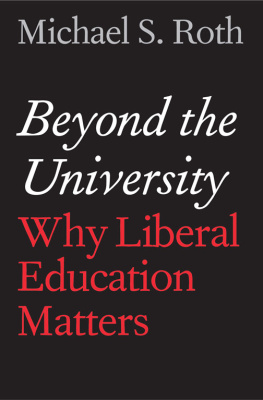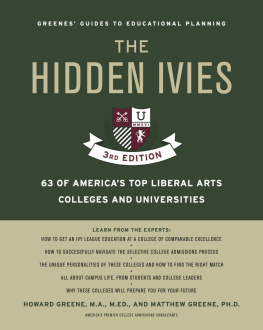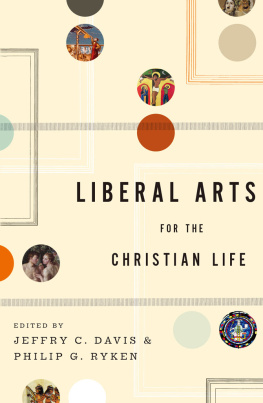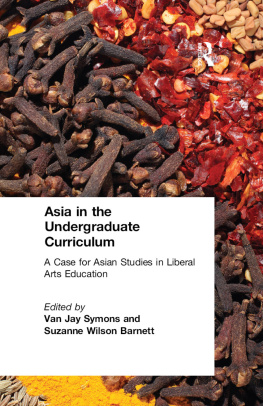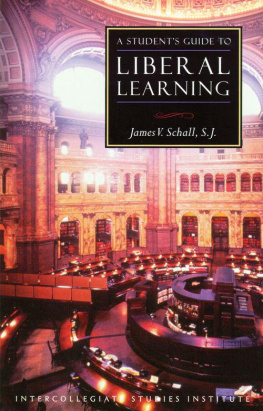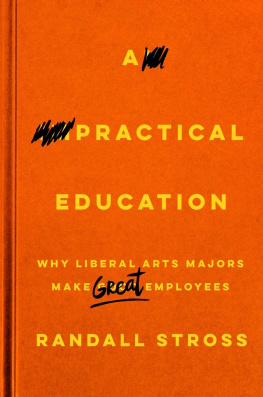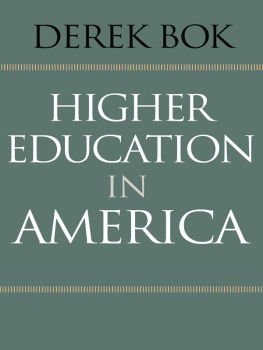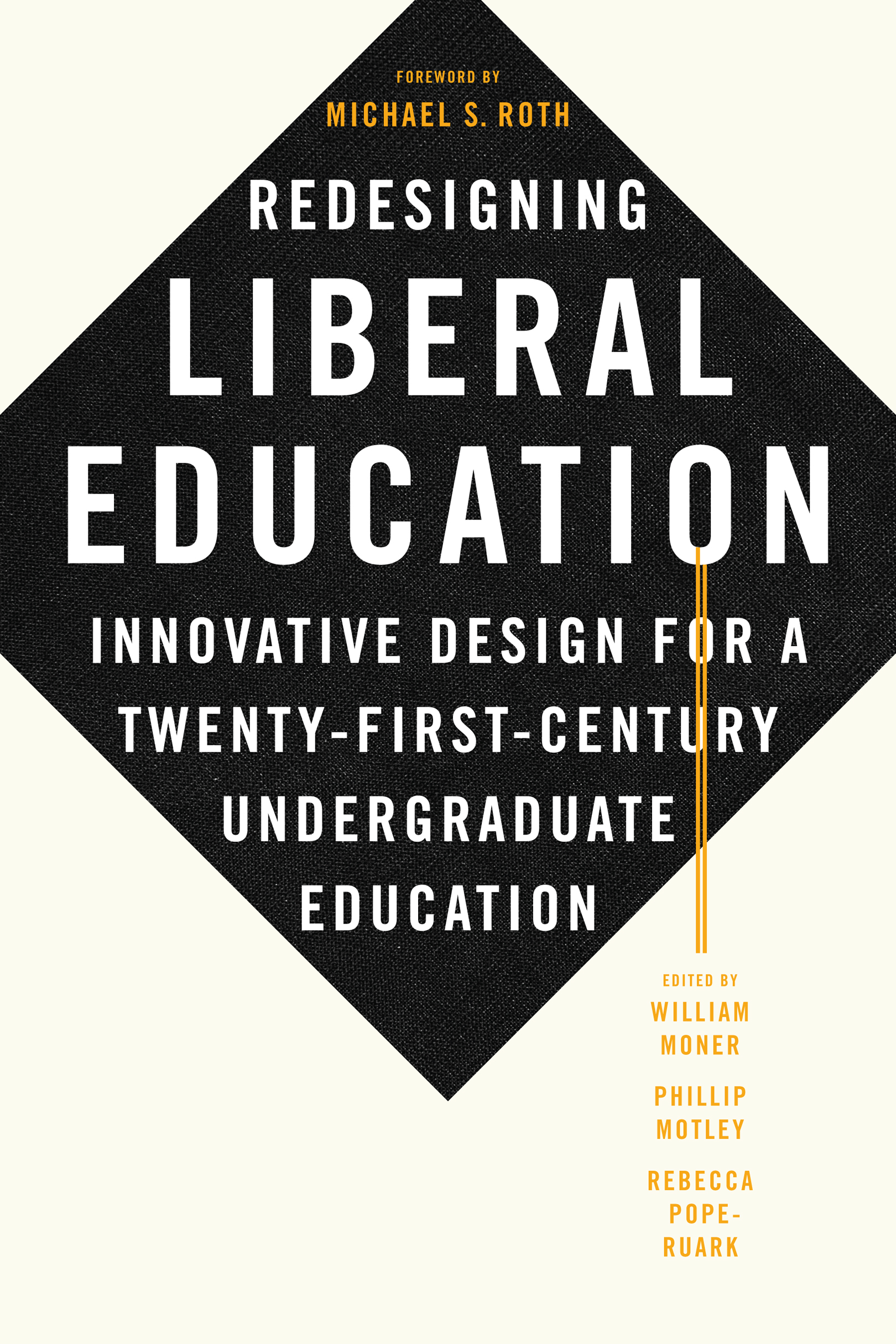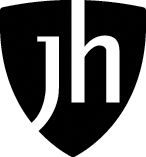Michael S. Roth - Redesigning Liberal Education: Innovative Design for a Twenty-First-Century Undergraduate Education
Here you can read online Michael S. Roth - Redesigning Liberal Education: Innovative Design for a Twenty-First-Century Undergraduate Education full text of the book (entire story) in english for free. Download pdf and epub, get meaning, cover and reviews about this ebook. year: 2020, publisher: Johns Hopkins University Press, genre: Politics. Description of the work, (preface) as well as reviews are available. Best literature library LitArk.com created for fans of good reading and offers a wide selection of genres:
Romance novel
Science fiction
Adventure
Detective
Science
History
Home and family
Prose
Art
Politics
Computer
Non-fiction
Religion
Business
Children
Humor
Choose a favorite category and find really read worthwhile books. Enjoy immersion in the world of imagination, feel the emotions of the characters or learn something new for yourself, make an fascinating discovery.

- Book:Redesigning Liberal Education: Innovative Design for a Twenty-First-Century Undergraduate Education
- Author:
- Publisher:Johns Hopkins University Press
- Genre:
- Year:2020
- Rating:3 / 5
- Favourites:Add to favourites
- Your mark:
Redesigning Liberal Education: Innovative Design for a Twenty-First-Century Undergraduate Education: summary, description and annotation
We offer to read an annotation, description, summary or preface (depends on what the author of the book "Redesigning Liberal Education: Innovative Design for a Twenty-First-Century Undergraduate Education" wrote himself). If you haven't found the necessary information about the book — write in the comments, we will try to find it.
Redesigning liberal education requires both pragmatic approaches to discover what works and radical visions of what is possible.
The future of liberal education in the United States, in its current form, is fraught but full of possibility. Todays institutions are struggling to maintain viability, sustain revenue, and assert value in the face of rising costs. But we should not abandon the model of pragmatic liberal learning that has made Americas colleges and universities the envy of the world. Instead, Redesigning Liberal Education argues, we owe it to students to reform liberal education in ways that put broad and measurable student learning as the highest priority.
Written by experts in higher education, the book is organized into two sections. The first section focuses on innovations at 13 institutions: Brown University, College of the Holy Cross, Connecticut College, Elon University, Florida International University, George Mason University, Georgetown University, Lasell College, Northeastern University, Rollins College, Smith College, Susquehanna University, and the University of WisconsinGreen Bay. Chapters about these institutions consider the vast spectrum of opportunities and challenges currently faced by students, faculty, staff, and administrators, while also offering radical visions of the future of liberal education in the United States. Accompanying vision chapters written by some of the foremost leaders in higher education touch on a wide array of subjects and themes, from artificial intelligence and machines to the role that human dispositions, mindsets, resilience, and time play in how we guide students to ideas for bringing playful concepts of creativity and openness into our work.
Ultimately, Redesigning Liberal Education reveals how humanizing forces, including critical thinking, collaboration, cross-cultural competencies, resilience, and empathy, can help drive our world. This uplifting collection is a celebration of the innovative work being done to achieve the promise of a valuable, engaging, and practical undergraduate liberal education.
Isis Artze-Vega, Denise S. Bartell, Randy Bass, John Bodinger de Uriarte, Laurie Ann Britt-Smith, Jacquelyn Dively Brown, Phillip M. Carter, Nancy L. Chick, Michael J. Daley, Maggie Debelius, Janelle Papay Decato, Peter Felten, Ashley Finley, Dennis A. Frey Jr., Chris W. Gallagher, Evan A. Gatti, Lisa Gring-Pemble, Kristna Moss Gudrn Gunnarsdttir, Anthony Hatcher, Toni Strollo Holbrook, Derek Lackaff, Leo Lambert, Kristin Lange, Sherry Lee Linkon, Anne M. Magro, Maud S. Mandel, Jessica Metzler, Borjana Mikic, William Moner, Phillip Motley, Matthew Pavesich, Uta G. Poiger, Rebecca Pope-Ruark, Michael Reder, Michael S. Roth, Emily Russell, Heather Russell, Ann Schenk, Michael Shanks, Susan Rundell Singer, Andrea A. Sinn, Christina Smith, Allison K. Staudinger, William M. Sullivan, Connie Svabo, Meredith Twombly, Betsy Verhoeven, David J. Voelker, Scott Windham, Mary C. Wright, Catherine Zeek
Michael S. Roth: author's other books
Who wrote Redesigning Liberal Education: Innovative Design for a Twenty-First-Century Undergraduate Education? Find out the surname, the name of the author of the book and a list of all author's works by series.

